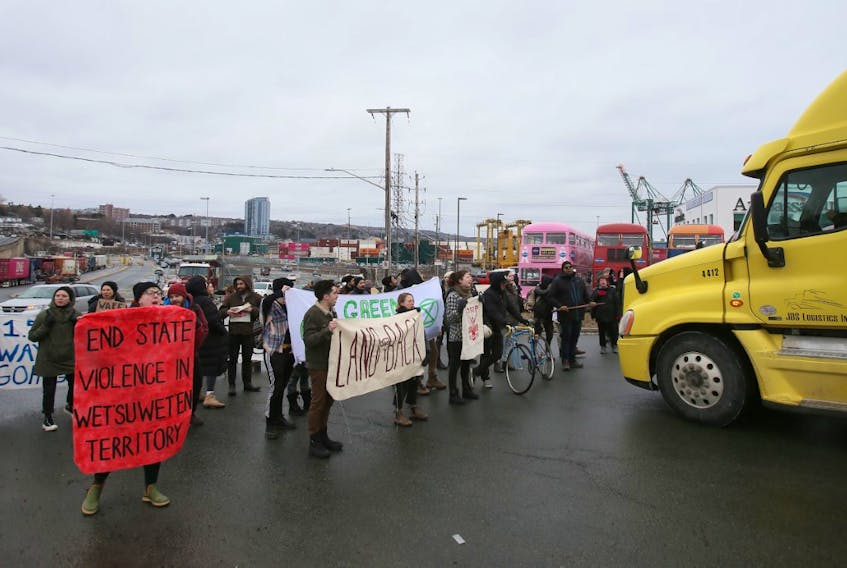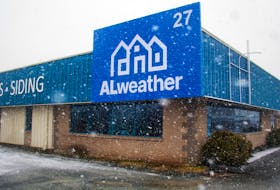CN Rail said on Thursday it has been forced to initiate "a disciplined and progressive shutdown" of its operations in Eastern Canada as a result of a continued blockade of the rail line that could have a dramatic affect on customers in Atlantic Canada.
The railway in a statement said its decision to shutdown Eastern Canada operations include "stopping and safely securing all trans-continental trains across its Canadian network and may imminently lead to temporary layoffs within the company’s Eastern Canadian operational staff."
Retailers in the Atlantic region have already been starting to feel the effects of the protesters blocking rail lines, with delayed freight train shipments causing gaping holes on some store shelves.
The blockades – in solidarity with opponents of a natural gas pipeline that would cross the traditional territory of the Wet'suwet'en First Nation in British Columbia – are also disrupting the shipment of forest products in this region.
It’s a situation the Halifax Port Authority is monitoring closely after a demonstration briefly blocked access to a local container terminal in the city earlier this week.
“We’re certainly watching very closely with CN Rail and our terminal operators,” Port of Halifax spokesman Lane Farguson said Thursday.
"At this point, the trains are still leaving Halifax."
Still, blockades in Ontario have caused shipments to Atlantic Canada to be delayed, with some retailers having to turn away customers as a result.
“We’re losing sales,” said a Pet Valu store clerk in Halifax. “We’re waiting for five skids … merchandise we were supposed to get this week and now we're not.”
The pet foods and accessories retailer has “huge holes” in its shelves as a result, the clerk said, noting that the store is waiting for shipments of cat food, dog food, small animal food as well as clothing, toys and treats.

Amazing Savingz Warehouse in Dartmouth has also been affected by the delays.
“We do have shipments that are being held up in Toronto as a result of the blockades,” manager Ross Davis said.
“For us, it’s not the end of the world,” he said. “But for some stores … it will certainly be a problem if this keeps up.”
The blockades are also creating uncertainty for the forestry industry, said Derek Nighbor, president and CEO of the Forest Products Association of Canada.
“Especially coming out of the Northern Pulp closure, we're seeing a lot of uncertainty in Nova Scotia right now, to start with, in terms of flow of goods,” he said.
“If you're looking to sell goods and move them into the U.S. or if you're using the rail system, this is creating significant uncertainty and additional unpredictability.”
Nighbor added that the blockades are having a significant “reverberation” throughout Atlantic Canada because vital switch points between Montreal, Toronto and Ottawa have been key targets for the protesters.
“These rail lines are really important arteries for us to get our products to market," he said.
“If you think about where our forestry mills are located, they tend to be in more rural and northern communities."
The blockades are a protest over the Coastal GasLink natural gas pipeline in northern British Columbia. It would stretch across the traditional territory of the Wet’suwet’en First Nation.
In a statement, CN Rail president and CEO JJ Ruest said the blockades are affecting "all Canadian supply chains."
"We are currently parking trains across our network, but due to limited available space for such, CN will have no choice but to temporarily discontinue service in key corridors unless the blockades come to an end," he said in the statement issued Tuesday.
Ruest added that food and consumer items, including Canadian grain, de-icing fluid for airports, construction materials and propane to Atlantic Canada are already being affected.









